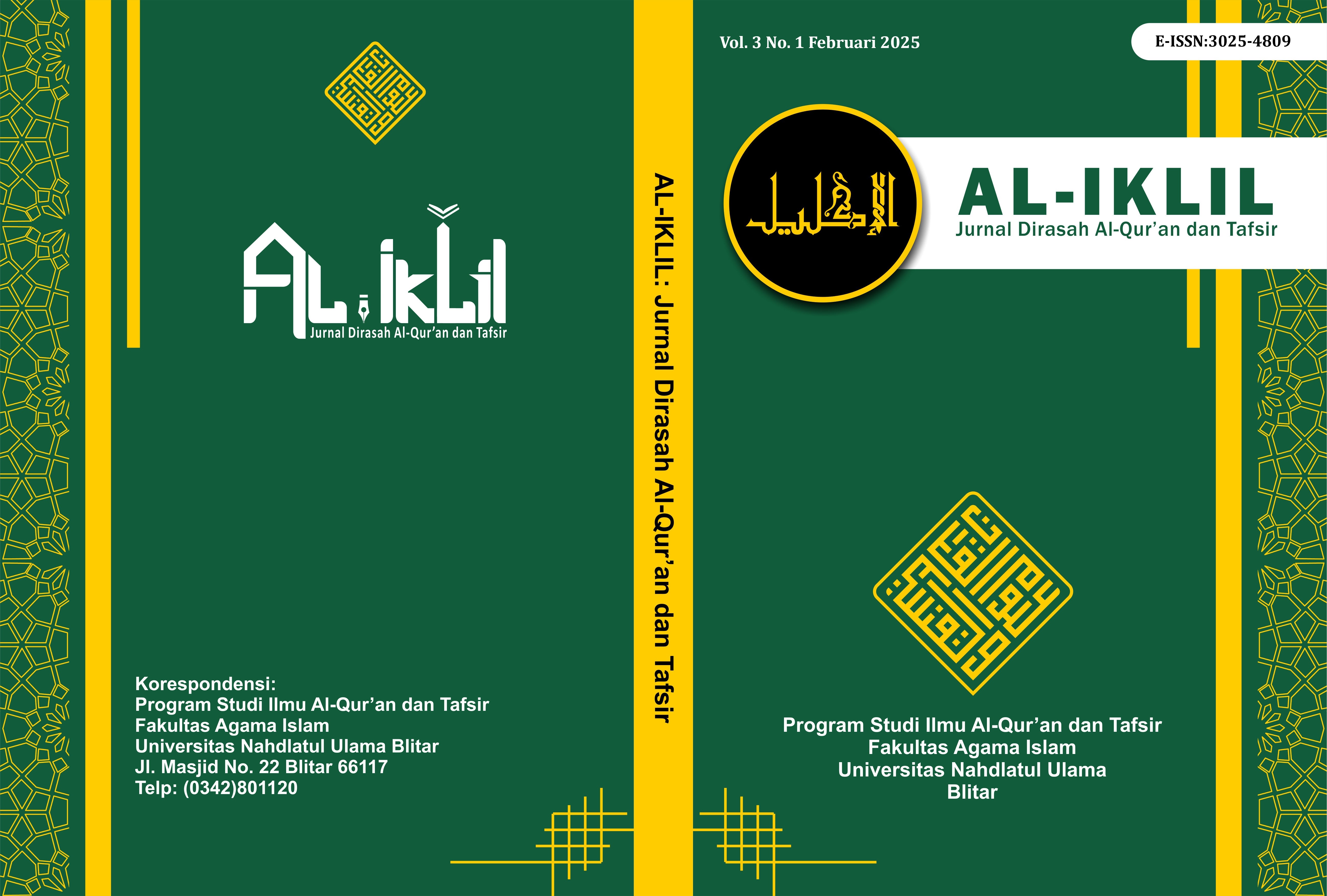Representasi Nilai Moral dalam Sastra Al-Qur'an: Sebuah Pendekatan Tematik
Abstract
This study examines the representation of moral values in Quranic literature through a thematic approach. The Quran, as a holy book, not only contains spiritual guidance but also presents a rich literary dimension with universal moral values. This research employs descriptive qualitative analysis with a hermeneutic approach to identify, analyze, and interpret moral themes contained in various forms of Quranic literature, such as stories (qashash), parables (amtsal), and dialogues (hiwar). The findings reveal that the Quran represents moral values through various literary strategies including: (1) narratives of prophets and past communities as moral exemplars, (2) use of metaphors and symbols to convey abstract concepts of good and evil, (3) dialogues depicting conflicts between positive and negative values, and (4) descriptions of paradise and hell as moral consequences. This research contributes to a deeper understanding of the literary aspects of the Quran and their relevance to moral character formation in contemporary contexts.






